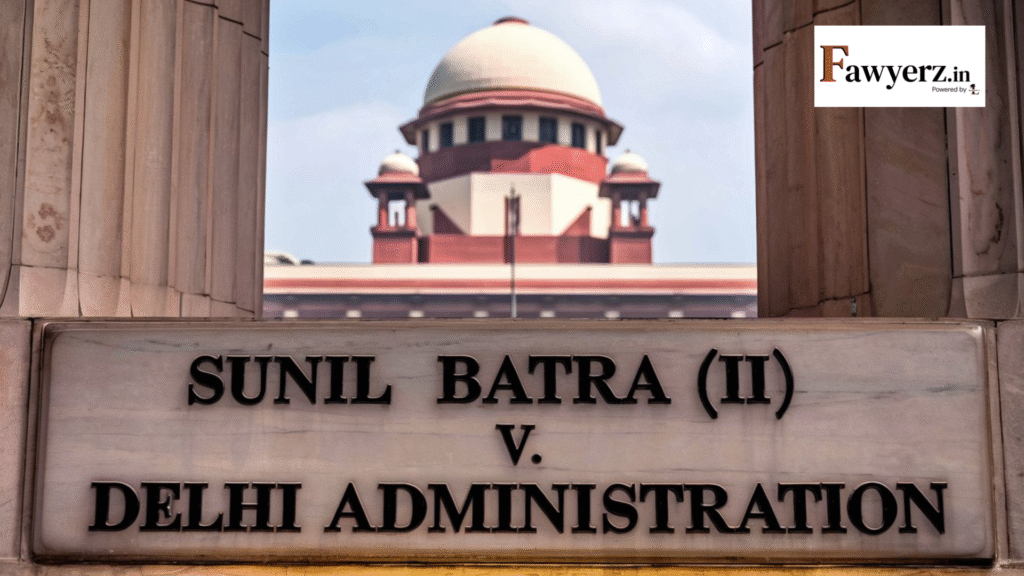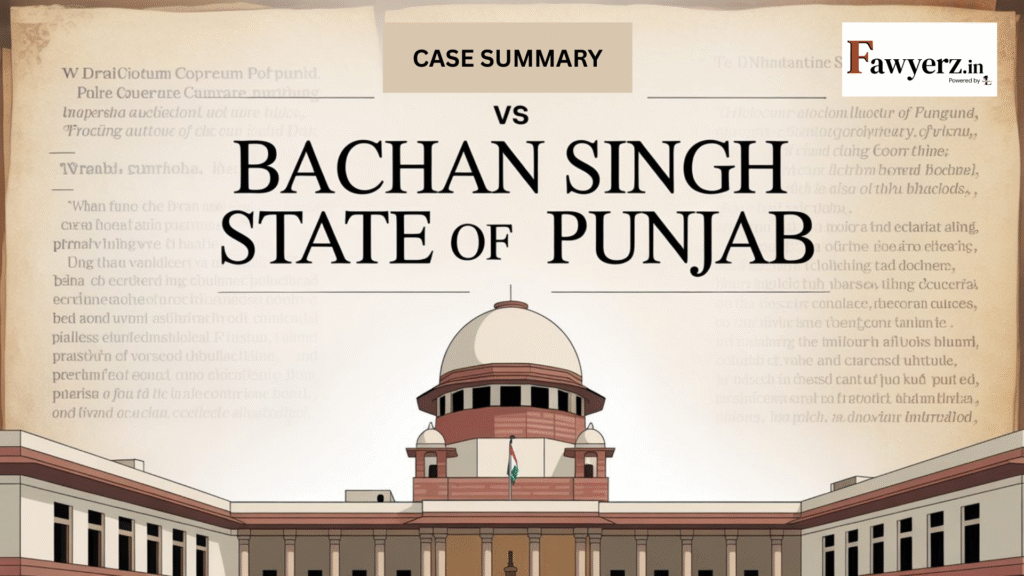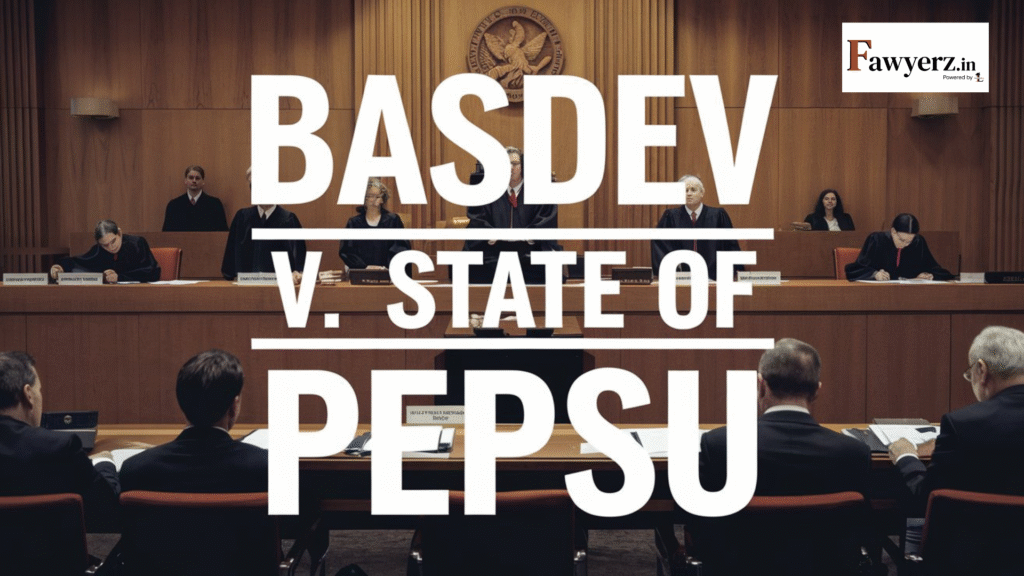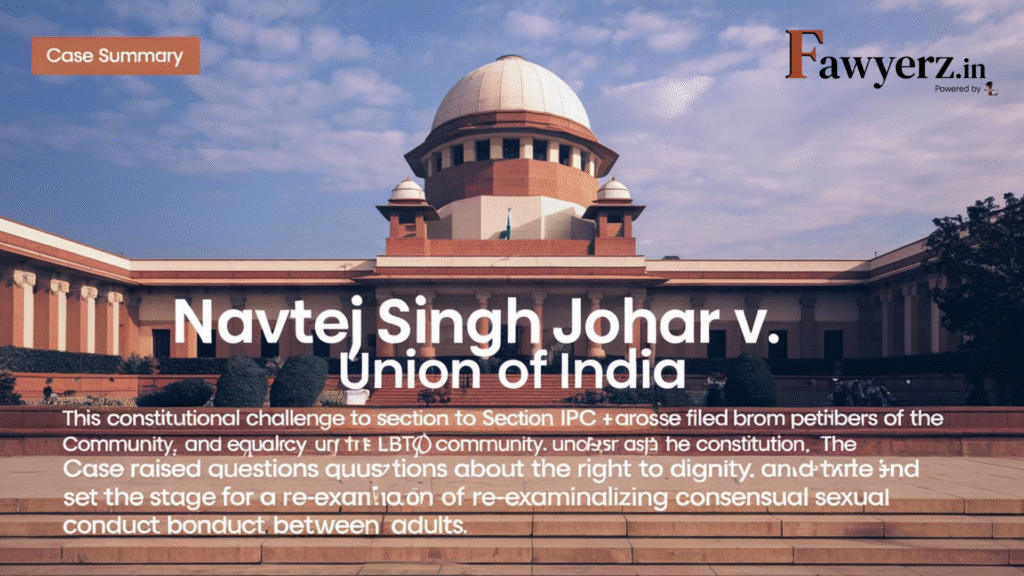Bachan Singh v. State of Punjab 1980 (Case Summary)
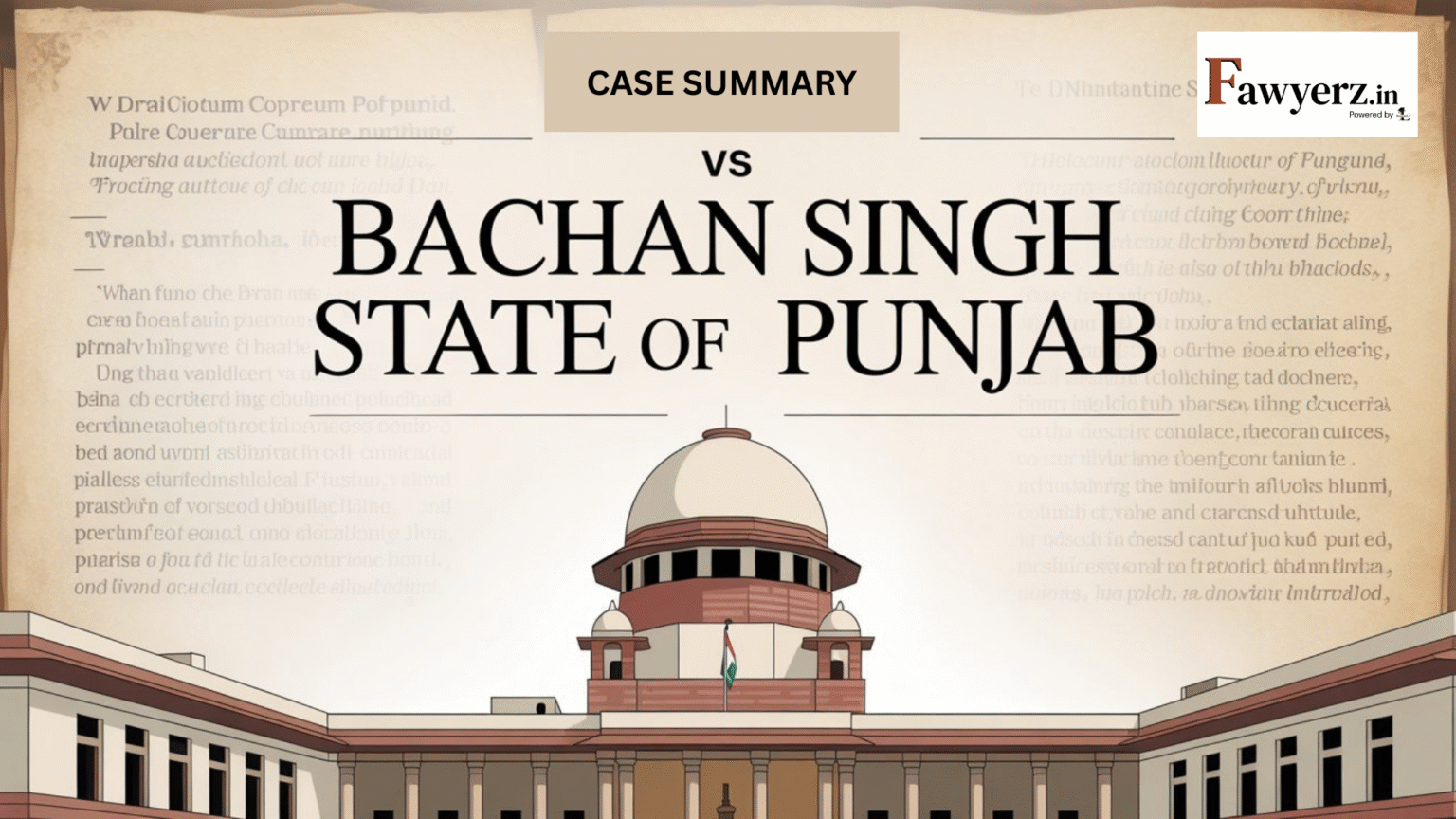
In this case, the Supreme Court was called upon to examine the constitutionality of the death penalty under Indian law. The matter centered on how and when capital punishment could be justified under Article 21 of the Constitution, especially in light of evolving standards of human dignity and the concept of “rarest of rare” cases.
Table of Contents
ToggleFacts of Bachan Singh v. State of Punjab
- Bachan Singh was convicted of the murder of three persons, including a woman and a child and sentenced to death.
- He had earlier been convicted of another murder but was released after serving a sentence of life imprisonment.
- Upon his release, he committed multiple murders.
- The case reached the Supreme Court on appeal, raising constitutional questions regarding the validity of the death penalty under Section 302 of the Indian Penal Code.
- The petition challenged the imposition of the death penalty as violating the right to life and personal liberty under Article 21.
Issues framed
- Whether the death penalty as provided under Section 302 of the IPC is unconstitutional in light of Articles 14, 19 and 21?
- Whether the procedure prescribed for imposing the death penalty under Section 354(3) of the CrPC is arbitrary or unreasonable?
- Whether the death sentence awarded to Bachan Singh was justified under the facts and circumstances of the case?
Subordinate Court Judgment
The Sessions Court convicted Bachan Singh under Section 302 IPC and sentenced him to death. The High Court upheld the conviction and confirmed the death sentence, holding that the murders committed were of a brutal and gruesome nature and warranted capital punishment. Bachan Singh then appealed to the Supreme Court under Article 136 of the Constitution.
Judgment of Bachan Singh v. State of Punjab
The Supreme Court examined the constitutional validity of the death penalty with reference to Articles 14, 19, and 21 of the Constitution. It upheld the constitutionality of capital punishment under Section 302 IPC, stating that it is not unreasonable or arbitrary when applied in accordance with fair, just, and reasonable procedure.
The Court introduced the “rarest of rare” doctrine, holding that the death penalty should only be imposed in the most exceptional cases where the alternative option of life imprisonment is unquestionably foreclosed. Section 354(3) of the CrPC, which mandates that special reasons be given for imposing the death penalty, was held to be a sufficient safeguard to ensure that the punishment is not arbitrarily imposed. The Court emphasized the importance of balancing aggravating and mitigating circumstances before awarding the death sentence. In Bachan Singh’s case, the Court found that the crimes committed were extremely brutal and fell within the rarest of rare category.
The Supreme Court thus upheld the death sentence awarded to Bachan Singh, while reaffirming that the death penalty is constitutionally valid when imposed with caution and fairness. The judgment laid the foundation for future capital punishment jurisprudence in India by restricting its application and insisting on individualized sentencing based on a principled approach.


